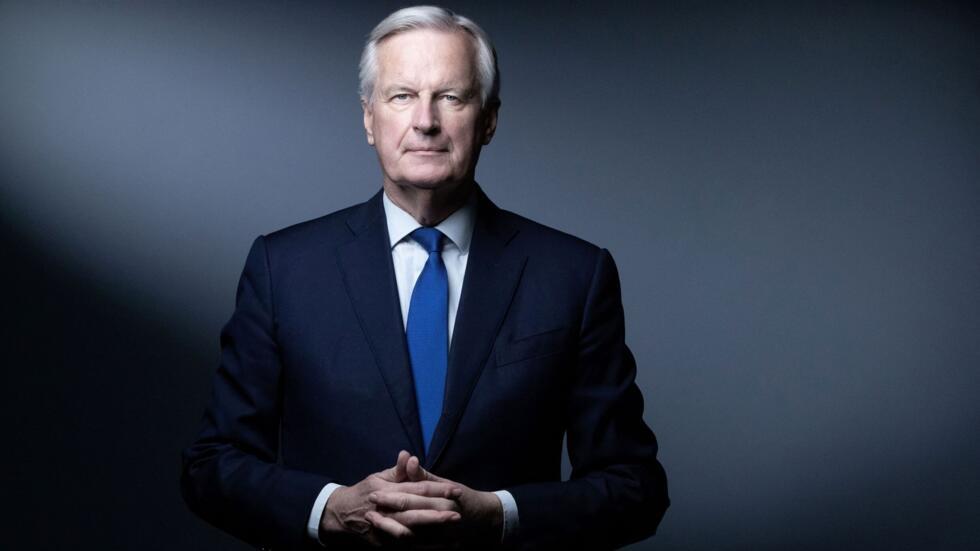
France’s President Macron has appointed Barnier, the Brexit negotiator, as the new prime minister
Emmanuel Macron, the French President, appointed Michel Barnier, the former Brexit negotiator for the EU, as his new prime minister on Thursday. Barnier was tasked with the task of unifying France and resolving the political paralysis that ensued after an inconclusive emergency election.
Under the constant threat of a motion of no confidence, the discreet, conservative politician will face the formidable task of attempting to advance the 2025 budget and reforms through a bitterly divided parliament.
In the annals of modern French politics, Barnier is the eldest prime minister at the age of 73, succeeding Gabriel Attal, who was the youngest. He was appointed by Macron two months later, after the election failed to secure a distinct majority for any group.
In the election, the left, which secured the first position but did not achieve an absolute majority, declared that they would be adamantly opposed.
“The French people were defrauded of their right to vote,” declared Jean-Luc Melenchon, the leader of the extreme left, in an appeal for street demonstrations on Saturday. He was described as a “unacceptable democratic coup” by Mathilde Panot, another hard-left lawmaker.
Much will be contingent upon the far-right National Rally (RN), the largest single party in parliament, which has stated that it will not obstruct Barnier at this time. However, it may do so in the future if a variety of demands are not met.
“We will plead for the major emergencies of the French — the cost of living, security, immigration – to finally be addressed, and we reserve all political means of action if this is not the case in the coming weeks,” said Jordan Bardella, the RN leader.
Although Barnier is a moderate career politician and a fervent pro-European, he significantly escalated his rhetoric during his unsuccessful 2021 attempt to become the presidential nominee of his conservative party, asserting that immigration was unmanageable.
At the age of 27, Barnier became a lawmaker and subsequently served in various French administrations, including as the foreign minister and agriculture minister. However, he has been absent from political office in France for 15 years, primarily at the EU headquarters in Brussels.
His most notable accomplishment abroad is his leadership of the European Union’s negotiations with the United Kingdom regarding its withdrawal from the organization.
“OUT OF MOTHBALLS”
A number of potential prime ministers had been considered by Macron in recent weeks; however, none of them garnered sufficient support to ensure a stable government.
Following the appointment, financial markets responded favorably by increasing French bank shares, slightly decreasing government borrowing costs, and slightly increasing the euro.
In general, Barnier’s political beliefs are in alignment with those of Macron, and it was imperative for the French president that his new prime minister refrain from attempting to reverse the reforms that had been implemented in recent years, particularly the pension reforms that incited the left.
It is still uncertain whether Barnier will commit to the full implementation of Macron’s political agenda or introduce new proposals. No matter what, he will be required to negotiate with other parties in order to secure the adoption of legislation in parliament.
Public finances deteriorated as Macron’s search for a prime minister continued. Bruno Le Maire, the outgoing Finance Minister, has stated that tens of billions of euros in budget adjustments are required to address the shortfall.
The emergency parliamentary election, which Macron gambled on, was a failure, as his centrist coalition lost dozens of seats and no party secured an absolute majority. In spite of this, the RN was unable to secure a victory, as voters united to prevent it.
RN lawmaker Laurent Jacobelli stated that it would be necessary for parliament to be dissolved as soon as feasible in order to prevent Barnier from being voted down. This would occur in early July of the following year. Barnier should also indicate his endorsement of a transition to proportional representation in lieu of France’s two-round voting system for single constituencies, according to him.
He was upfront about the fact that the registered nurse was not particularly enthusiastic about Barnier.
“They are taking out of mothballs those who have governed France for 40 years,” TF1 reported Jacobelli.
All Categories
Recent Posts
Tags
+13162306000
zoneyetu@yahoo.com


